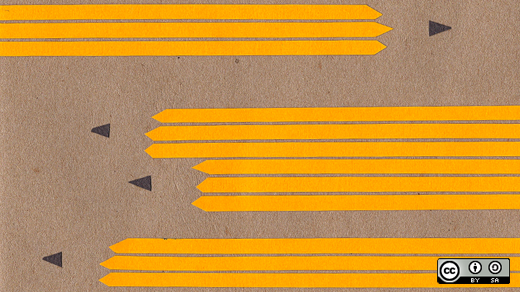Proponents of getting students involved as contributors in open source projects often cite the benefits of having a portfolio and a stellar network of references for job or even school applications. What some don't know is that there are scholarships specifically geared towards open source contributors - and that, for those who want to encourage more young people to get involved in FOSS, these scholarships are quite easy to set up and administer.
The Fedora Scholarship program, sponsored by Red Hat, recognizes one high school senior per year for contributions to the Fedora Project and free software/content in general. With a selection process that looks at the student's contributions to Fedora and other free software projects and uses members of the Fedora community as references, it's a little different from most scholarships you might be used to seeing. In addition to $2,000 USD for each of 4 years of an undergraduate education in any field of the recipient's choice, the scholarship includes 4 years of annual all-expenses-paid trips to the nearest FUDCon, the Fedora community's main gathering of contributors, which happens once per year in different parts of the world.
The winner of the 2010 Fedora Scholarship is Ian Weller, a student from Salina, Kansas who first got involved with Fedora as a software packager during his sophomore year of high school. "When I was browsing https://fedoraproject.org when I was installing FC6, it talked about how you could contribute to Fedora," Weller explains. "I think some of the reasons it gave were stuff like "it's good to give back!" and "you won't have to tell future employers what you did, you can tell them to google your name!" and other cheesy marketing stuff. But it worked... I think what led me to the Fedora project was that I was actively using it and it was the first thing I knew I could contribute back to." More of Ian Weller's story is available at his Fedora Scholarship recipient interview. "It's hard to understand something until it becomes a part of you," says Weller. "And free software is definitely a part of who I am now. I don't think I could go back."
For those interested in replicating the scholarship for their own projects, there's a set of instructions on how to duplicate the scholarship, since part of the intent of the Fedora Scholarship is to encourage other projects and interested individuals to start their own. Working out financial details is easy; most colleges and universities accept deposits from third parties directly into a student's account, and the financial office of the school can tell you how this works. This way, the full amount of the scholarship goes towards offsetting tuition and expenses and the student never has to deal with tax implications of the award. Different approaches to scholarship design and administration are also out there; for instance, Emma Jane Hogbin has published instructions on how to recreate her scholarship for female students who have demonstrated creative uses of technology, which emphasizes a concrete, citable recognition of the student's accomplishments over a specific dollar amount.
What other scholarships for open source contributors do you know of? Have you ever considered starting one of your own? Leave your thoughts in the comments below.







2 Comments